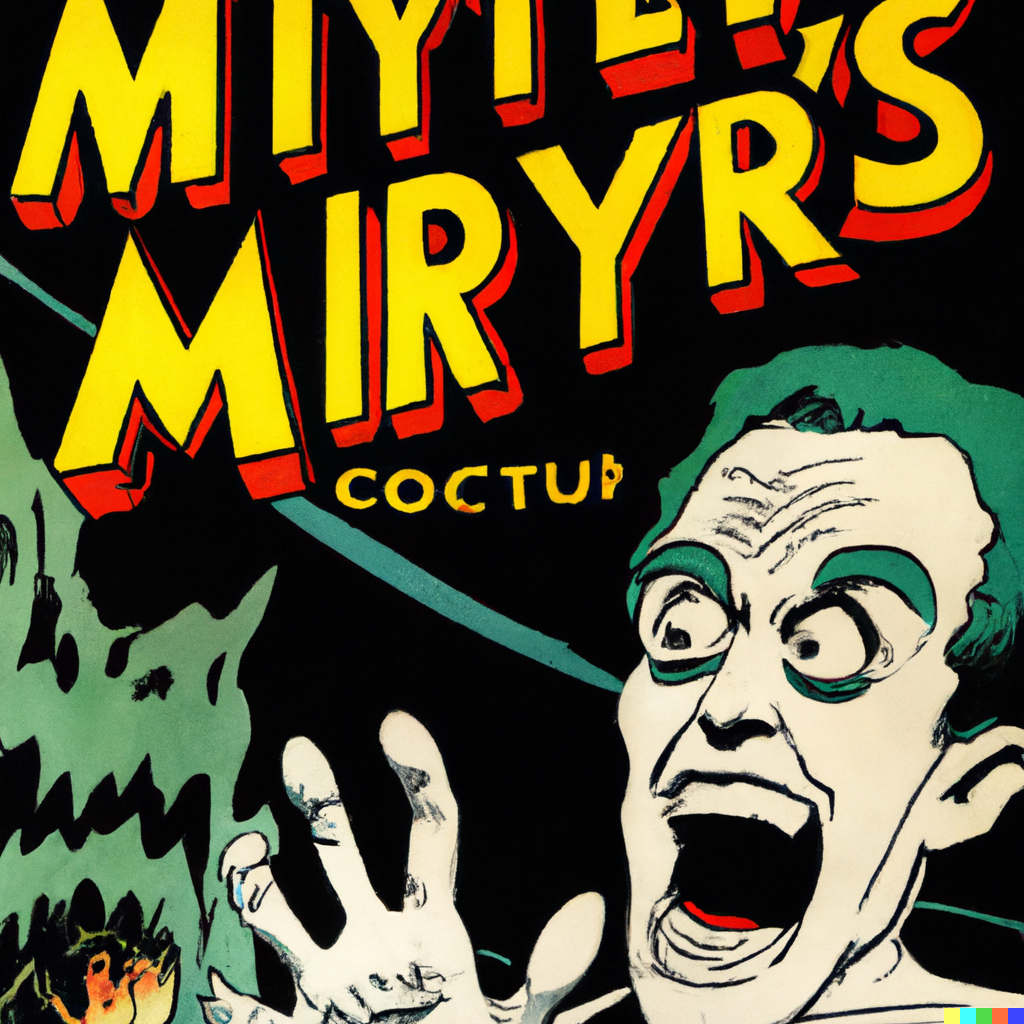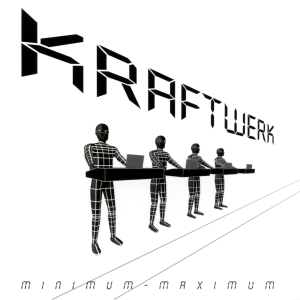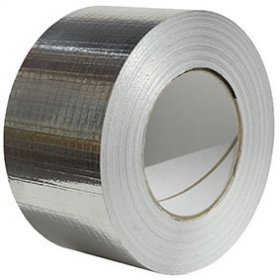Which one(s) and why?
Which one(s)
Arch.
why?
- The Arch-Wiki
- I like pacman
- The Arch-Wiki
- I wanted a rolling-release distribution.
- The Arch-Wiki
- It just works. I had only one more serious problem in ~8 years of running Arch
- Did I mention the Arch-Wiki?
Edit:
Having said that, I have an eye on immutable distros. Maybe one day I’ll try one out.
EndeavourOs makes it super simple too
So does archinstall.
The Arch wiki really is amazing. It’s also still very useful for Linux stuff in general. The qemu page has come in handy more than a dozen times.
Yeah, I use Mint and the Arch wiki is still one of my first stops when I have an issue
Is Manjaro good if I want in on this Arch goodness but don’t want to spend hours configuring stuff? Coming from Fedora
I haven’t used Manjaro myself but I heard that it is not as good as Arch. Rumors I heard where that it is not as solid as vanilla Arch. YMMV.
If you plan to use the AUR, absolutely not.
If you don’t plan to use the AUR it’s probably fine, but I haven’t used it personally in the last few years so I’m not sure.
I really have bad luck with Manjaro, even when I don’t use the aur it always breaks on me. I just stick to arch, I started with it and I’m sticking with it.
Endeavour is better for that, after the install you’ll have plain arch but with a bunch of stuff installed and already set up
I haven’t used it personally but I’ve seen a lot of folks bad mouthing Manjaro.
Lots of complaints of instability and it being poorly run project. One of the more objective complaints I’ve read is they have a slower release process so security fixes take longer then Arch.
@SubArcticTundra @Haven5341 I personally think Manjaro is a false good idea.
You’ll have an “out of date” system (i.e., one-month-old) but packages from the AUR which are made for the up-to-date system.
Quite a nightmare to use IMO (and that’s not talking about Manjaro leadership and certificates problems)
I’ve been running it on my work laptop for 6 years at this point and I’ve had no major issues I couldn’t solve.
Having said that, I recently switched my gaming rig over to endeavour and it’s been great.
I’ve been using manjaro for around a year. It broke on me once, probably my fault, idk. I enjoy it! I’ve distro hopped many places and a year is a long time for me, so much about it is right for me. You’ll certainly get a worthy experience of what arch is capable of, I believe.
That being said, I plan on swapping to arch really soon.
No. Manjaro is more likely to break than arch because they hold of updating their pakages. What you are looking for is EndavourOS. I consider it to be “the new manjaro”
I’ve been daily driving Manjaro for 4 years without any issues. Generally speaking I’d recommend seeing if there is a flatpak for an app before using AUR. I don’t update as soon as updates are out though, so usually any issues there may have been have been shmoothed over before I get to it.
you forgot arch wiki
Debian. Seemed like the most generic “Linux” there is. Nothing special, nothing weird. Just Linux. Gray, boring, system defaults Linux.
It’s funny cause it started out as one of the most opinionated Linux distros.
still is, and always has been. and that’s not a bad thing.
It helps when your opinions become the gold standard
And because of that, custom configurations are wonderfully easy to make, technical issues are rare, and the few issues you do experience are quite possible to solve. Which is why I settled on Debian.
I went from years of using Arch to Debian. I’ve been tired of the rolling release system and their massive updates. Maybe I was using it wrong but after years my OS was a giant blob with gigabytes of updates every week. I choose Debian for the same reason as you and also because of the stability. If I want the latest version of a package I use Flatpak.
It just works! Unless there something with Nvidia. Yeah fuck them!
I miss AUR though
I settled on openSUSE Tumbleweed because it’s rolling and reliable. I chose KDE Plasma long before I chose my distro.
Using this right now. It’s been a little less stable then I’ve heard other people claim, I had about a day and half where I was consistently freezing up 5 minutes after login. After that was patched it has been fine.
The real test for me is if I can walk away from it for 3 weeks and update the system without the world exploding. That was what always broke Arch for me.
All my problems have been of my own making. Also I updated one computer after 18 months or thereabouts and it was fine although I wouldn’t recommend leaving it that long on a computer you actually use!
I am now at NixOS. I like the reproducibility and immutability of the distro, but the documentation is far from great and configuring the OS you want is not that straightforward. I also don’t like that even though it has a great number of packages, they tend to be slightly outdated.
I am not sure if I will stick with it, but I really like that I can create very specialised configurations that are also portable. I am currently using KDE but I am thinking of switching to Hyprland once I get more comfortable around NixOS and home manager/flakes, as nothing beats tiling managers in my opinion.
After trying out a few distros over the last 20 years or so (
openSUSE, Ubuntu, Debian, Arch, Fedora and Silverblue were the ones I actively used for a stretch of time on desktop, Debian and CentOS on server), I also landed on NixOS.Who knows what the future brings, but things feel more settled to me than they ever have. Maybe that’s because there’s a (declarative) solution for every custom setup, it’s just a function of time and profiency in Nix. Or maybe it’s because I invested quite a bit of work into a trivially reproducible setup for most of my machines and workflows (all in one glorious version-controlled flake), that the sunk costs are too high to switch elsewhere.
I’m still willing to experiment with DEs/WMs, currently running Gnome on my main and Sway on weaker machines. Hyprland is a bit out there for my taste, but I’m really looking forward to giving Cosmic DE a try once it’s ready.
I also settled on NixOS after Ubuntu -> Arch -> Debian -> Fedora -> Silverblue -> NixOS. Couldn’t be happier and no plans to leave.
Nixpkgs is actually one of the most up to date software repositories. (~90% according to repology)
You may be using a release channel which will only be updated for important security updates.
NixOS/hyprland is the perfect blend of practicality and fun for me
It works pretty solidly, sometimes doing something others can do imperatively in a single command can be a pain though
Did you have to learn the Nix language? I like the idea but I found all the different commands you have to use confusing…
You can get pretty far with copy-pasting. If you want to try it out, you should first realize that there’s always 10+ different ways to do the same thing. Stick with what works and with what seems the most intuitive to you.
Personally, I suggest going straight for a flake-based setup. Flakes are somehow still labeled experimental, but they’re actually mature and broadly adopted.
You can start with getfleek.dev and transition to nix after you settled and fleek isnt enough anymore.
Another vote for Nix!
Fedora.
(Specifically Workstation - i.e. the Gnome variant, but I’ve used other spins and they’re also great)
Pretty up to date, reliable, spearheads new developments that go on to benefit the Linux desktop as a whole, they don’t make a bunch of crazy alterations to the DEs they ship.
And to think I was reluctant to try it for ages because the name sounds like it’d be some neckbeardy distro.
And to think I was reluctant to try it for ages because the name sounds like it’d be some neckbeardy distro.
When Linus Tech Tips did their month-long Linux challenge, they vetoed a viewer suggestion to use Fedora because they thought it was a “meme distro”.
I use Fedora btw
Why would you ever think it was a meme distro? Red Hat has been around forever.
Because of the fedora-wearing neckbeard stereotype.
tips fedora
m’distro

That’s why
Fedora atomic GNOME aka silverblue
- It has very good defaults, works out of the box, I can switch anytime to another de or a ublue image without messing around with my setup
- selinux
- podman
- flatpak centric
- auto updates
- widely used
Current Cons:
- openssl is not installed by default (for gsconnect)
- gnome-tweaks is not installed by default
- uses toolbx instead of distrobox. Toolbx is better for servers, distrobox better for desktop, imo.
- flatpak firefox isn’t used
Arch. Minimal, fast, rolling and it doesn’t break. Plus, the AUR and the Wiki are unvaluable.
Had been on: RedHat (199something), Mandrake, Slackware, Ubuntu and Debian before.
I thought Arch was notorious for breaking all the time? Is that a specific version of Arch?
This is a misconception. Arch breaks only if you mess enough with AUR. If you keep with official repo and maybe Flatpaks, you’ll be fine
You can use AUR with moderation as well and you’ll still be fine
Dunno, during 8ish years I have only hada couple of minimal problems due to updates (and the solution was promptly available on Arch homepage). Can’t speak for other, though.
That’s not my experience - have been using arch for around four years and it broke only once by not letting me log into the system after I failed to update pam configs after the system upgrade.
We’re using Arch 2
(No it doesn’t, it just has some bugs here and there, e.g. my media keys don’t work after a couple days of uptime (gnome). I stopped actively looking for and reading the release notes years ago as it just works… and if it doesn’t, I still have a btrfs snapshot from before the update)
I tried Manjaro for awhile and had some major system breaks. Manjaro is/was often pitched as newbie-friendly arch, so having it break made me think arch was going to be even worse.
Been running endeavour for a few years now though, and haven’t had any real issues. Much smoother than my Manjaro experience.
Agree about manjaro they doing really weird things about their system and it’s breaking.
Oh I completely forgot about RedHat! Yes, that was my first one too. Then Ubuntu was kinda the thing to go to and it worked for a good while until it just didn’t work for me anymore.
Today I’m on Mint because it was the first distro I tried that was able to get the Wifi working on my super old/bad HP Laptop. I started to like it and then also moved to Mint on my desktop. Running it for a year now and since my PC isn’t the youngest anymore, I doubt I will switch distro again anytime soon.
unvaluable
You’ve edited this post and left this in (or added it!?) so I suppose you mean it!
I just made a mistake, sorry :-P English us not my first language.
Sorry, I was just joking; it’s clearly a typo and I don’t think anyone misunderstood (or maybe even noticed).
No problem, man ;-) I didn’t take it as an offense. Have a nice day!

I want to settle on Debian Stable, I really do, but I use Hyprland, so I’ll have to wait until we get Debian 13 (hopefully 13 and not 14 lol).
Hyprland is surprisingly easy to build/install from source.
Even on Debian 12? That’s what I’ve installed now and I really want to give it a shot.
Edit: tried setting up Hyprland via the Manual install from Releases way, it needed a few libxcb dependencies and it needed execute permissions, but after that I hit a roadblock: libxcb-errors which doesn’t seem to be available on Debian.
I guess I could have taken solving the depencies for granted. I’ve built and installed it on both Arch and Fedora but obviously those repos would be more up to date.
Yeah, I switched to AwesomeWM for the time being, but I’ll be honest, I’m getting fed up of it all. I think I’ll try Fedora later and if that doesn’t work for me… I really don’t know what I’ll switch to.
Fedora has an official package of it as well.
Yeah. I’m on Fedora currently and it turns out that, through Copr and rpmfusion, I could get everything set up and all my packages installed so I’ve been on it for a few days now, and with dnf5, install speeds are actually good so I’ve decided to stick to it, and I think I’ll keep on using it for the foreseeable future, probably at least until the release of Fedora 40 (at which point, if all my packages and Copr repos are updated for Fedora 40, I’ll probably upgrade to it, as it seems there is really nothing better for me out there: I’ve tried Arch, NixOS, Tumbleweed, Debian, Ubuntu, Void, and many others and they all lack something I need). So, Fedora might just become my forever distro, but who knows? I guess we’ll have to wait and see.
How is Arch “making things difficult for oneself”?
I set it up once 8 years ago and have since migrated my install across several SSDs.
Still runs like butter.
I learned, and learned, and learned, and every step led me to simplify, simplify, simplify.
Now, I’m a Debian man. If I didn’t install it, it probably isn’t on there, just like I like it.
Yeah might have gotten stuck on Debian as well if I didn’t make the mistake to run stable when I first tried it. Choosing stable made sense to me since I wanted a stable os but when I was greeted by “ICE weasel” that was way behind the Firefox I got used to on Ubuntu and other software being terribly out of date I decided to move on.
Well then I got stuck on Arch.
But while it would be easy to say “never looked back” that’s not true of course, these days I tun Debian on most of my machines (only that they are servers) and Ubuntu on some (like my work Laptop) my personal Desktop and laptop are Arch though and probably always will be.
Debian. So many other distros are based on it anyway. I use it on damn near everything now.
Debian. It always works until it doesn’t and when it doesn’t there’s information at my level of understanding that allows me to correct it.
deleted by creator
This makes me feel better. I had the entire intention to distro hop around but mint was the first one and it just worked lol
I always come running back to Mint because it Just Works.
Debian: stability
Same! Distrohopped for years, but for ~15 years Debian has been rock solid for both desktop and home minimal server.
Same. After 20 years of distro hopping and living on latest releases, Debian feels like home with the least amount of broken packages and general overall panic.
I settled on two.
-
Arch for my desktop, because there I like having an always up-to-date system with the latest drivers and libraries so that I can always try the latest versions of whatever it is I want to play with next. Pacman is also a pretty good package manager, and almost any piece of software that is not in the default repos can be found in the AUR. For the rest, I also like that Arch just gets out of your way and lets you configure your system how you want.
-
Debian for anything that runs unattended, like all my homelab services. It’s well tested, offers feature stability, has long-enough support, and doesn’t do weird things every other release like forcing snaps or netplan or cloud-init on you. Those “boring” qualities make it the perfect base to run something for a long time that doesn’t scream for attention all the time.
-
EndeavourOS.
I’m naturally a tinkerer and an avid gamer, with very recent hardware so an Arch based distro fits really nice.
It has just the right amount of pre-installed stuff. Not quite as bloaty as Manjaro or most ubuntu-based distros, but not quite as DIY as vanilla Arch. I know I can install and uninstall anything on Linux but when a distro already comes with just the right baseline for me, work smarter, not harder.
Ubuntu/Debian based distros didn’t quite suit me, I love the AUR to death, I love the Arch wiki (even if a lot of it can be used just fine on other distros), I love rolling release and having the latest everything. I do use PopOS on my laptop since I use it a lot less and therefore I want to update it less often.
Only issue is when they ship dumb defaults sometimes that break my workflow but I can diagnose and undo them I guess.
Was on Fedora for 3 yrs now and decided to distrohop to EndeavourOS like yesterday. Reason: jc141 releases were finnicky on Fedora; very very probably my fault lol.
Gotta say, I’m impressed with the system and makepkg is just so comfy to use wtf.
Might go back to Fedora eventually but EndeavourOS has been a smooth sailing so far. I think I’ll stay a while.
Right there with ya. EndeavourOS has been my distro for at least two years now. There really isn’t a reason to hop.
Also, if I need to reinstall for whatever reason (happens semi regularly because I’m a moron who moves fast and breaks shit), I just drop my package list from my home partition into the live-boot directory and it’ll download all my applications during install, and I’m back to where I was in less than half an hour.
Also the extras included like the update application, and mirror refresh, are very convenient.































